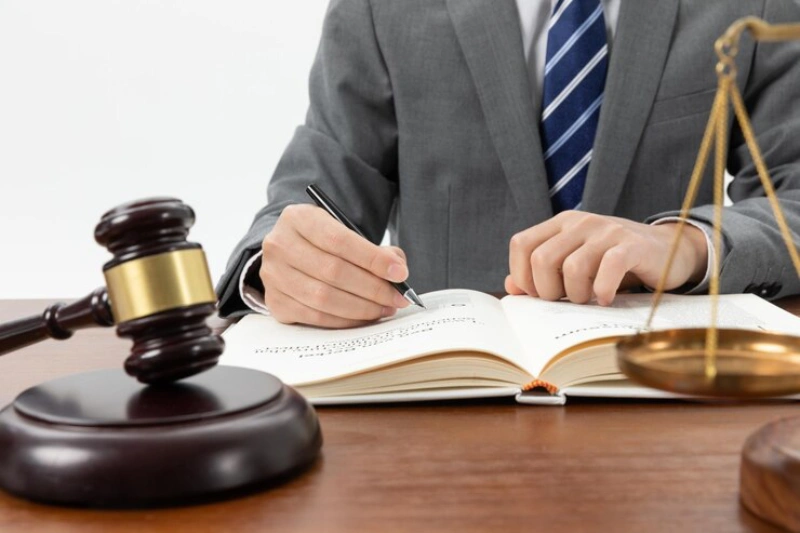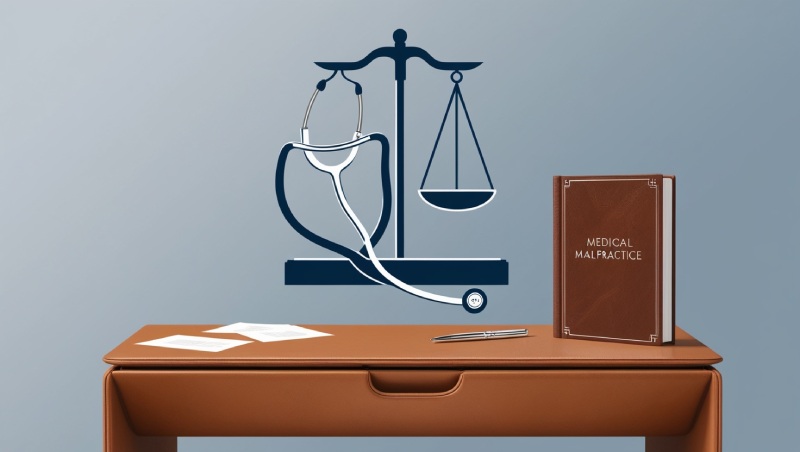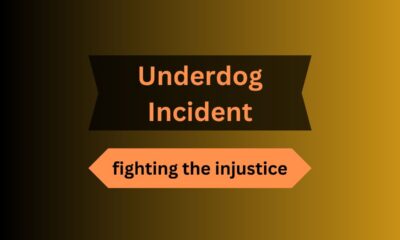Law
Analyzing the Interplay Between Textual Tradition and Legal Practice in Masechta Mikvaos 7th Perek

The study of Masechta Mikvaos, particularly its 7th Perek (chapter), offers a fascinating glimpse into the interface between textual tradition and legal practice within Jewish law.
This chapter, pivotal in the tractate dealing with the laws of ritual immersion, integrates textual interpretation with practical legal application. By examining the interplay between these elements, we gain insights into how ancient legal texts continue to shape and influence contemporary religious practice.
The Textual Tradition of Masechta Mikvaos
Masechta Mikvaos, part of the Talmud, deals extensively with ritual purity and immersion laws. The Masechta Mikvaos 7th Perek is particularly notable for its detailed examination of various cases concerning the validity of mikvaos (ritual baths) and the conditions under which immersion is deemed valid. This chapter is a rich source of legal and ritualistic guidelines, reflecting the depth of textual analysis characteristic of Talmudic scholarship.
The textual tradition in Masechta Mikvaos, including the 7th Perek, is deeply rooted in earlier sources, including the Torah and the Mishnah. It provides a comprehensive framework for understanding the parameters of ritual immersion, incorporating various opinions and interpretations from earlier sages. This intricate web of textual references underscores the importance of meticulous study and interpretation in developing Jewish law.
Legal Practice and Its Application
In practical terms, the legal principles outlined in Masechta Mikvaos 7th Perek have significant implications for how ritual baths are constructed and maintained. The chapter addresses complex scenarios, such as the size and depth of a mikveh, the materials used in its construction, and the specific requirements for ensuring the water’s validity. These regulations are not merely theoretical; they directly impact the practice of ritual immersion within Jewish communities.
For instance, the chapter discusses the criteria for what constitutes a valid mikveh, including the necessity for a minimum volume of water and specific conditions regarding its purity. These details are essential for ensuring that ritual immersion meets the standards set by Jewish law, reflecting the practical application of the principles derived from the textual tradition.
The Interaction Between Textual Analysis and Legal Decision-Making
The interaction between textual analysis and legal decision-making is a central theme in the study of Masechta Mikvaos 7th Perek. The chapter highlights how scholars use textual interpretation to address complex legal questions and resolve practical issues related to ritual purity. This process involves a careful examination of the texts and an understanding of their implications for everyday practice.
Rabbis’ and legal authorities’ decisions are often based on nuanced interpretations of the texts, balancing traditional interpretations with contemporary needs. This dynamic interplay ensures that legal practice remains relevant and responsive to the evolving context of Jewish life while still grounded in the rich tradition of textual scholarship.
The Influence of Historical and Cultural Context
Understanding Masechta Mikvaos 7th Perek also requires considering the historical and cultural context in which it was developed. The chapter reflects the legal and social realities of the time, including the physical and environmental factors that influenced the construction and use of mikvahs. These historical insights provide valuable context for interpreting the text and understanding its application.
For example, the specifications for mikveh construction in the Talmudic period were influenced by the available materials and technologies. Changes in these factors have led to adaptations in the practical implementation of the laws, demonstrating the chapter’s continued relevance in a changing world. This historical perspective enriches our understanding of how textual traditions adapt to meet contemporary needs while preserving their original intent.
Contemporary Relevance and Adaptation
The relevance of Masechta Mikvaos 7th Perek in contemporary practice is evident in how modern Jewish communities apply its principles. The chapter’s teachings continue to guide the construction and maintenance of ritual baths, reflecting a commitment to preserving the integrity of ritual practices while adapting to modern circumstances. This ongoing adaptation illustrates the enduring nature of the textual tradition and its ability to address new challenges.
Modern interpretations of the text often synthesize traditional teachings with contemporary considerations, such as advancements in construction materials and changes in community needs. This process highlights the flexibility and resilience of the legal tradition, ensuring that it remains meaningful and practical for current and future generations.
In examining Masechta Mikvaos 7th Perek, we uncover the intricate relationship between textual tradition and legal practice within Jewish law. The chapter serves as a testament to the depth of textual analysis and its impact on practical legal applications concerning ritual immersion.
By understanding the interplay between these elements, we gain a deeper appreciation of how ancient texts continue to shape and influence contemporary religious practices. This exploration reveals the enduring relevance of Masechta Mikvaos in maintaining the integrity of Jewish ritual and legal traditions while adapting to the demands of modern life.
Law
The Ultimate Guide to Finding the Best Lawyers for Medical Malpractice

Choosing the best lawyers for medical malpractice case can be overwhelming. You might be asking yourself, “What are the reasons to sue a doctor?” It’s important to understand your options and find the best legal help. This guide will walk you through the steps to find a lawyer who has the experience and skills you need.
Don’t let confusion hold you back from seeking justice. Let’s dive in and find the right lawyer for your case!
Evaluate Their Track Record
Evaluating a lawyer’s track record is an important step. Look for a medical malpractice attorney with a history of successful cases. Check if they have won cases similar to yours. A good track record shows they know how to handle complex medical malpractice cases.
Ask about the outcomes of their past cases. A strong track record can give you confidence in their abilities. Always choose a lawyer with proven success in medical malpractice law.
Ask for a Free Consultation
Asking for a free consultation is a smart step when choosing a lawyer. The best medical malpractice lawyers often offer this service. It gives you a chance to discuss your case without any cost. During the consultation, ask about their experience and strategy.
You can also get a feel for their communication style. This meeting helps you decide if they’re the right fit for you. Always take advantage of a free consultation before making your choice.
Evaluate Their Track Record
Evaluating a lawyer’s track record is crucial when hiring one. Look for a birth injury attorney with a history of success in similar cases. A strong track record shows they know how to handle complicated legal situations. Ask about their past case results and how they won.
Review any client feedback to see how they performed in previous cases. A good track record can boost your confidence in their abilities. Always choose a lawyer with a proven history of handling cases like yours.
Look for Clear Communication
Clear communication is essential when choosing a lawyer. You should feel comfortable asking questions. The best lawyers take the time to explain things simply. They avoid legal jargon and make sure you understand. A good lawyer will update you regularly on your case.
They will be easy to reach when you need them. If you don’t understand something, they should explain it again. Choose a lawyer who values clear, open communication.
Review Their Credentials
Reviewing a lawyer’s credentials is an important step. Check if they are licensed to practice law in your state. The best medical malpractice lawyers have certifications in their field. Look for any special training or education related to medical malpractice.
A lawyer with a strong educational background can be more reliable. You should also check if they have membership in professional organizations. A lawyer’s credentials show their dedication to the practice. Always verify their qualifications before making a decision.
Learn More About Best Lawyers for Medical Malpractice
Finding the best lawyers for medical malpractice is key to getting the compensation you deserve. Take your time to research, ask the right questions, and trust your instincts.
A skilled lawyer will guide you through every step of the process. They will fight for your rights and ensure your case is handled properly. Don’t settle for anything less than the best.
Visit our blog for more!
Law
How Personal Injury Lawyers Help Navigate Complex Legal Processes?

Navigating the aftermath of a personal injury can be overwhelming for individuals dealing with physical, emotional, and financial challenges. Beyond recovering from the injury, victims often face a complex legal process involving insurance claims, liability disputes, and potential court proceedings. Personal injury lawyers are critical in guiding individuals through these challenges, ensuring their rights are protected while pursuing fair compensation. We will explore how Brach Eichler Injury Lawyers help clients by simplifying legal complexities, handling negotiations, and advocating for their needs at every stage. Their knowledge and support empower victims to focus on recovery while securing justice.
Understanding and Explaining Legal Rights
One of the primary ways personal injury lawyers assist individuals is by explaining their legal rights in a clear and accessible manner. After an accident, many people need to become more familiar with the laws governing personal injury claims or how liability is determined. Lawyers clarify legal principles, including negligence, comparative fault, and statute limitations. For instance, they can explain whether a victim shares any fault for the accident and how that might impact their compensation. Additionally, they clarify the damages clients may recover, such as medical expenses, lost wages, and pain and suffering. Without this guidance, victims may be unaware of their entitlements or fall prey to misleading information from opposing parties. Personal injury lawyers bridge this gap, ensuring clients fully understand their rights and legal options, which enables them to make informed decisions about their cases.
Gathering Evidence to Strengthen the Case
A crucial part of any personal injury claim is evidence collection, which personal injury lawyers manage with precision and diligence. Building a strong case requires gathering evidence, including medical records, accident reports, witness statements, and photographic documentation. For example, after a car accident, a lawyer might consult with accident reconstruction experts to determine how the collision occurred and who was at fault. Additionally, they ensure medical records and expert testimony demonstrate the full extent of the injury, including long-term impacts on the client’s life. Handling evidence requires careful coordination and adherence to legal standards for admissibility. Lawyers understand what constitutes strong evidence and how to present it effectively to insurance companies or in court. Victims may struggle to collect the necessary proof without their involvement or overlook critical details, weakening their claims. Personal injury lawyers ensure the case is supported by thorough, well-documented evidence that strengthens the pursuit of fair compensation.
Negotiating Fair Compensation with Insurance Companies
Insurance companies are central players in personal injury claims, but their goal is often to minimize payouts to protect their bottom line. Personal injury lawyers act as intermediaries between clients and insurance adjusters, negotiating to secure fair compensation for victims. With representation, individuals may be able to accept low settlement offers, especially when facing financial stress from medical bills or lost income. Lawyers leverage their knowledge of the claim’s value, calculating damages based on medical costs, future treatments, loss of earning potential, and emotional distress. They also counter insurance tactics such as downplaying the severity of injuries or disputing liability. Lawyers present compelling evidence and arguments to challenge these strategies and advocate for the client’s best interests. By handling negotiations, they relieve victims of the stress and uncertainty associated with dealing directly with insurers, ensuring the settlement reflects the true impact of the injury.
Providing Representation in Court When Necessary
While many personal injury claims are resolved through settlement negotiations, some cases require court proceedings to achieve a fair outcome. Personal injury lawyers provide skilled representation, ensuring clients’ cases are presented effectively before a judge or jury. Taking a case to court involves numerous legal procedures, including filing paperwork, pre-trial motions, discovery processes, and presenting arguments during trial. This process can be daunting and prone to mistakes for individuals unfamiliar with legal systems. Lawyers manage these procedural complexities, ensuring deadlines are met, evidence is presented persuasively, and legal arguments align with case law and statutes. They prepare clients for court appearances, cross-examine witnesses, and challenge opposing arguments, all to secure a favorable verdict. Legal representation in court levels the playing field, particularly when facing defendants backed by insurance companies or legal teams. Personal injury lawyers provide the confidence and advocacy clients need when pursuing justice in the courtroom.
Calculating and Pursuing Full Compensation
A critical aspect of personal injury claims is determining the appropriate compensation a victim deserves. Personal injury lawyers excel in calculating both current and future damages to ensure clients receive fair settlements. They evaluate various losses, including medical expenses, property damage, lost wages, and reduced earning capacity. In cases involving severe or long-term injuries, they work with medical professionals and financial experts to estimate the costs of ongoing treatments and rehabilitation. Additionally, personal injury lawyers consider non-economic damages, such as pain and suffering, emotional distress, and diminished quality of life. By factoring in tangible and intangible losses, lawyers ensure that victims are adequately compensated for the full impact of the injury. With this careful calculation, individuals can avoid undervaluing their claims and accepting settlements that fail to meet their needs. Personal injury lawyers advocate for comprehensive compensation, helping clients recover financially while addressing long-term consequences.
Personal injury lawyers are crucial in helping victims navigate the complex legal processes of seeking justice and compensation. From explaining legal rights and gathering evidence to negotiating settlements and providing courtroom representation, they simplify the challenges that accompany personal injury claims. Their involvement ensures that victims understand their options, receive fair compensation, and avoid common pitfalls in the legal process. By managing communication, calculating damages, and offering strategic advice, personal injury lawyers allow clients to focus on healing while ensuring their cases are handled carefully and diligently. Through their dedication and guidance, individuals are better equipped to overcome legal complexities and secure the justice they deserve.
Law
Common Misconceptions About Criminal Defense Lawyers

According to job recruiter Zippia, there are more than 252,159 criminal defense lawyers in the U.S. as of 2023. A criminal defense lawyer plays a vital role in the justice system. They’re advocating for individuals who are dealing with accusations of certain crimes, making sure their rights are protected.
But many people have misconceptions about what these lawyers do and how they operate. For instance, there are some who think that criminal defense lawyer exclusively represent guilty people or that their role is merely to assist clients in escaping consequences.
Criminal defense lawyer Justin L. Ward says that criminal defense lawyers play a crucial role in making sure their clients get a fair trial, advocate for their constitutional rights, and scrutinize the evidence presented against them.
Criminal Defense Lawyers Always Defend Guilty Clients
Many people often believe that criminal defense lawyers only represent clients who are guilty. However, the true purpose of a criminal defense lawyer is not to decide if someone is guilty or innocent, but to ensure that every individual, no matter what they are accused of, gets a fair trial. Criminal defense lawyers stand up for the legal system, questioning the prosecution’s evidence, protecting the rights of those accused, and making sure that the trial process is fair.
As Charlotte, NC criminal lawyer Kevin Barnett points out, a defense lawyer plays an essential role, no matter whether the person is guilty or not. It is the role of the lawyer to protect the integrity of the process and to give everyone the opportunity so that they can effectively represent themselves.
Criminal Defense Lawyers Manipulate the Legal System
Some people think that defense lawyers find ways to manipulate the legal system to help their clients avoid consequences. In reality, defense lawyers work within ethical and legal boundaries to protect their clients’ rights. They carefully examine the evidence, engage with witnesses, and make sure that the prosecution establishes its case clearly and convincingly. This rigorous approach upholds the justice system and helps prevent wrongful convictions.
Defense lawyers are not manipulating the system for their own benefit—they are committed to upholding due process and making sure their clients get a fair trial as the law intends.
Criminal Defense Lawyers Don’t Care About Justice
Another common belief is that defense lawyers are solely focused on winning cases and are indifferent to justice. But the truth is, criminal defense lawyers are deeply committed to the principles of justice. By advocating for their clients, they help maintain fairness in the justice system, ensuring that no one is wrongly convicted. Their efforts make sure that the prosecution must meet a high standard of proof while also protecting the rights of the accused.
Even when representing someone who may be guilty of a crime, defense lawyers are still fulfilling an important role: defending the constitutional rights that protect everyone, regardless of the charges they face. This helps prevent miscarriages of justice and ensures that the system functions properly.
Criminal Defense Lawyers Are Expensive and Unethical
While it is true that criminal defense lawyers often charge significant fees due to the complexity of the cases they handle, many lawyers offer flexible payment plans or even pro bono services to ensure that everyone can access quality legal representation. It’s also important to note that the overwhelming majority of defense lawyers are ethical professionals committed to upholding the law.
Like any profession, there may be a few bad examples, but the ethical standards governing the legal profession are rigorous. Lawyers who break these rules can face severe consequences, including disbarment. When you hire a skilled criminal defense lawyer, you’re investing not just in a legal defense but in ensuring that the justice system works fairly for everyone.
Criminal Defense Lawyers Support Criminal Behavior
A widespread misconception is that criminal defense lawyers are somehow complicit in or supportive of criminal activity. This misunderstanding arises from a lack of knowledge about the legal system and the role of defense counsel. Defense lawyers do not condone criminal actions; rather, they ensure that every accused person receives a fair trial and that their constitutional rights are protected throughout the process.
The role of a defense lawyer is to challenge the evidence presented by the prosecution, question witnesses, and make sure the accused is treated fairly under the law. The adversarial process in court—where both sides present their cases—is vital to the integrity of the justice system. By defending their clients, criminal defense lawyers help ensure that justice is served, whether the client is guilty or innocent.
Conclusion
Criminal defense lawyers play a vital role in the justice system by ensuring that the rights of the accused are protected, no matter the charge. They don’t manipulate the system or condone criminal behavior; rather, they ensure that everyone, no matter the accusation, gets a fair trial.
By challenging the prosecution’s evidence and providing legal representation, defense lawyers help prevent wrongful convictions and ensure that justice is truly served. It’s important to understand that their work isn’t about supporting criminal behavior but about standing up for the fundamental rights that protect us all.
-

 Entertainment11 months ago
Entertainment11 months agoBest Kickass Proxy List 2024 – 100% Working to Unblock to Access
-

 Lifestyle11 months ago
Lifestyle11 months agoBanging The Underdog Incident 2022
-

 Entertainment11 months ago
Entertainment11 months agoTamilMV Proxy Sites List 2025 – How to Unblock TamilMV Safely?
-

 Entertainment11 months ago
Entertainment11 months agoTamilRockers Proxy 2025: 20+ Working Links, Mirror Sites & VPN Guide
-

 Fashion9 months ago
Fashion9 months agoTrendy Midi Dresses for Casual Wear: Hair Care Tips Included!
-

 Entertainment11 months ago
Entertainment11 months agoPirate Bay Proxy List 2025: Access The Pirate Bay Safely
-

 Technology8 months ago
Technology8 months agoSSIS 469 – Detailed Guide to Understand The Features and Benefits
-

 Blog9 months ago
Blog9 months agoCy Kass – Family Detail of Alex Wagner and Sam Kass




